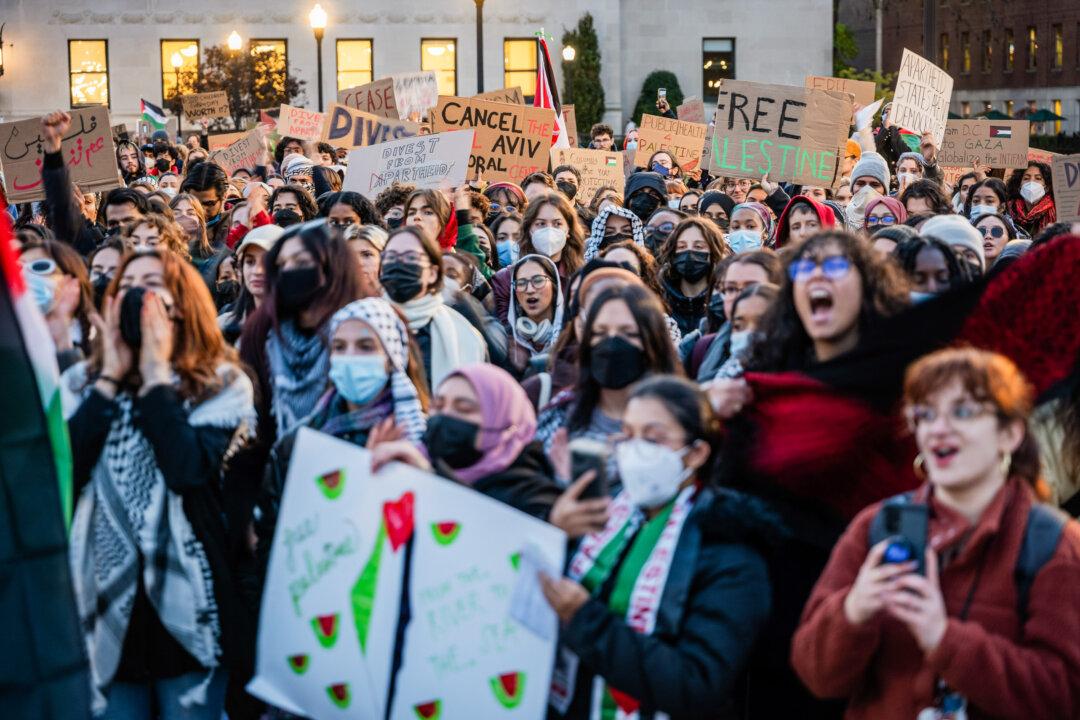Police arrested more than 100 people on Columbia University’s campus on April 18 after protesters set up an encampment on the campus to protest against Israel’s military actions against the Hamas terrorist group in Gaza.
New York City Mayor Eric Adams said that 108 people were arrested for trespassing on the university’s property. Police ensured that there was no violence or injury during the disturbance, he said.





